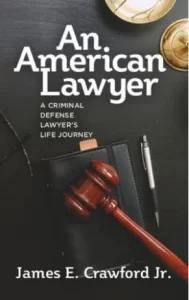Children Can Be Accused Of Sex Offenses
Don’t Move Forward Without Legal Protection
Middle schoolers sending suggestive photos of themselves over message apps. Two high schoolers caught having sex under age 18. These incidents can quickly turn into a nightmare of a sex offense and even rape charges brought against minors and children.
Protect your loved ones from Maryland’s indiscriminate sex crime laws with the champions at JC Law – where we’ll fight for your family like it was our own.
What Possible Sex Offenses Can Minors Be Charged With In Maryland?
Maryland does not usually differentiate between underage and adult defendants when it comes to sexual offense or assault cases, especially if the minor in question is aged 14 or over.
That means that law enforcement can accuse minors under the age of 18 with a whole range of sex-related crimes:
- First- and second-degree rape, which includes statutory rape
- First-, second-, and third-degree sexual offenses
- Child pornography
The last charge of distribution or creation of child pornography is particularly troubling when it comes to minor defendants in Maryland. Children do stupid things for attention, like “sext” a friend or would-be significant other.
However, Maryland law can be without mercy in its charges if a minor technically commits a felony charge – and they can be tried as adults with all the consequences thereof.
Can A Minor Be Charged With Statutory Rape In Maryland?
Yes, a minor can be charged with statutory rape – under a few specific situations.
Statutory rape under Maryland law is a “sexual relationship” with at least one of the parties under the age of 16.
The law does not consider minors under 16 capable of granting legal, informed consent for such activities – even if both parties insist the relationship was mutual.
Therefore, if both parties were under 16, the “older” of the two individuals can be accused of statutory rape against the younger.
The law also does not provide exceptions for conduct under false pretenses. So, if a 17-year-old has sex with a 13-year-old who claims to be 16, the elder of the two can still be charged with statutory rape.
However, Maryland does have a “close in age” exception, known colloquially as “Romeo and Juliet” laws.
Teenagers and young adults cannot be charged with statutory rape if the relationship was consensual and the parties are within three years of each other.
That means that an 18-year-old high school senior can’t be accused of raping his 15-year-old sophomore girlfriend – so long as the relationship was consensual.
Of course, if either party protests or otherwise does not consent to sexual relations, rape and other sex offense charges can still be filed.
Is Underage “Sexting” Illegal In Maryland?
“Sexting” – the electronic sending of sexually explicit photos, often by SMS text or app messaging services – is illegal in Maryland if depicting underage subjects.
Therefore, if a minor takes a photo of themselves that appears to be sexually explicit or suggestive and then texts it to a friend, girlfriend or boyfriend, that minor can be charged with creating and distributing child pornography.
If the recipient of such an image forwards it to others, they can also be charged with distributing child pornography. If the minor did so with the express intent of hurting a former boyfriend of girlfriend, an overzealous prosecutor may even charge them with a criminal revenge porn case
What Is “Child On Child Sexual Behavior?” Does It Mean My Child Will Grow Up To Be A Sexual Predator? Can They Be Charged As A Sex Offender?
“Child on child” sexual behavior is when a child tries to engage another in sexual exploration or activities. It’s particularly prevalent in younger age groups, such as elementary and middle school.
Many child-on-child behaviors can be a normal, regular part of growing up. Depending on the age, “healthy” child-on-child sexual behaviors might be:
- Public displays of nudity as they learn about privacy
- Mutually comparing genitalia with consenting others of the same age out of curiosity
- “Pecking” each other on the lips during recess
It is when these behaviors fall outside of these “normal” ranges – such as touching another child without their consent, actively soliciting sexual activities clearly beyond their development stage, or participating in sexual behaviors with children outside of their given age range – that such behavior becomes problematic.
Unfortunately, so many of these children commit the actions not because they’re “pedophiles” or “sexual predators,” but because they themselves are abused or otherwise need extra help.
With a solid support network and therapy, the vast majority of children who perform these sorts of excessive behaviors grow up without trauma and never again “commit” another sexual offense.
However, if the behavior is allowed to continue, the families of the other children in question may accuse the instigator of sexual assault.
Children accused of committing sexual offenses against other minors must have a criminal defense lawyer, so they can receive the help they need without becoming labeled as sex offenders for the rest of their lives.
If you want more information on child-on-child sexual behaviors, the National Child Traumatic Stress Network has an excellent bulletin on understanding and coping with sexual behavior problems in children, specifically written for parents and guardians.
Will My Child Be Tried As An Adult On Sex Offense Charges?
Yes, prosecutors can request that child defendants accused of sexual offenses be tried as adults if:
- The minor is at least 15 years old.
- The minor is charged with first- or second-degree rape.
- The minor is charged with felony first-, second-, or third-degree sex offenses (but possibly not misdemeanor fourth-degree offenses).
- The minor is charged with felony-level child pornography offenses.
Your criminal defense lawyer must work as hard as possible to keep the case within the juvenile courts to ensure that adult-level punishments are not levied against a child.
What Are Possible Consequences For Minors Convicted Of Sex Offenses In Maryland?
If the minor is convicted of a misdemeanor sex offense as part of an “adjudication hearing” in juvenile court, then the minor may:
- Be put on probation
- Be “committed” to a Department of Juvenile Services facility of some kind.
- Pay up to $10,000 restitution to the victims.
In addition, the minor would be required to register on Maryland’s Juvenile Sex Offender Registry, which would keep the details of the case and conviction for life. (This list is not publicly available.)
If, however, a minor is convicted as an adult in criminal court of a felony sex offense, the punishments increase dramatically:
- Up to 10 years in prison and $25,000 in fines for a first offense of a child pornography charge
- Up to life imprisonment for conviction of a first-degree rape charge
- Up to 20 years in prison for a sex offense conviction
Since the minor would be convicted in the regular criminal court instead of the juvenile justice system, they would be enrolled in Maryland’s Sex Offender Registry for public view and background checks.
Will A Juvenile Convicted Of A Sex Offense Be Required To Register On Maryland’s Sex Offender Registry?
Minors convicted of sex offenses can end up on Maryland’s Juvenile Sex Offender Registry if:
- They’ve been found guilty (“adjudicated”) in juvenile court of a crime that would be a first-, second-, or third-degree sexual offense and/or rape.
- The minor was at least 14 years old at the time of the act.
This database is different from the “normal” Sex Offender Registry in one very important way: Such entries are not able to be seen or searched by the general public.
Your child’s record in the Juvenile Sex Offender Registry will be there for law enforcement to check and can possibly be used against them as a “prior” record for future sex crimes.
However, it should not show up in basic employment background checks.
How Can A Criminal Defense Lawyer Help Defend Juveniles Accused Of Sex Crimes?
Allegations of sex crimes committed by children should never be taken lightly by parents or guardians. Even if the child is ultimately found innocent of the accusations, charges can ruin academic prospects and will be part of their permanent criminal record unless expungement is later requested.
Families of children accused of sex crimes should not expect that their child’s innocence will win their freedom from the allegations.
Law enforcement takes sexual misconduct extremely seriously, particularly if other vulnerable children are involved. They will be looking for evidence against the accused – your child – not necessarily to free them from the investigation.
A criminal defense lawyer with experience in both sex crimes and juvenile cases will be a fundamental part of any child’s defense. They can:
- Protect and insulate your child from overly aggressive law enforcement, detectives, and prosecutors
- Justify dismissal of the charges to the Department of Juvenile Services to avoid drawn-out adjudications or trials
- Argue to keep your child in juvenile – rather than criminal – courts
- Help connect your child to therapy programs and other resources to make sure they’re healthy
- Prove your child’s case before a judge whenever needed
- Negotiate with prosecutors for beneficial plea bargains, if necessary
Don’t try to win your child’s freedom from sex crime accusations by yourself. Retain a legal champion who will fight for your child as if they were their own, so you can get back to the important task of loving and raising your family.

“I wrote this on another site saying that [Jim] Crawford is an excellent lawyer. He took care of my nephew a while back. He and his other lawyers worked on the case and fixed it for him. I would definitely use him again!”
